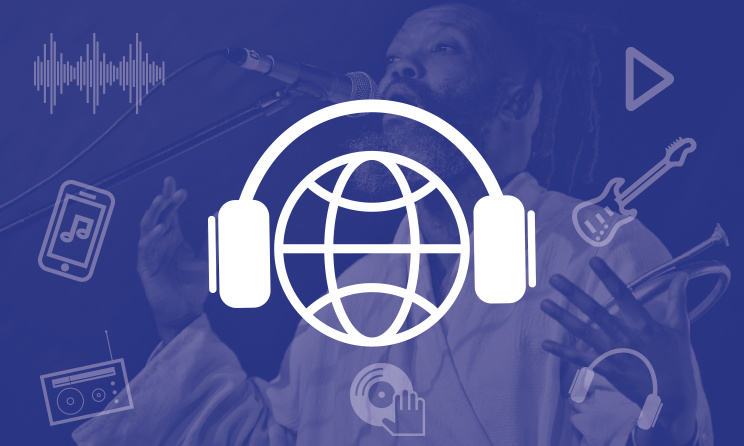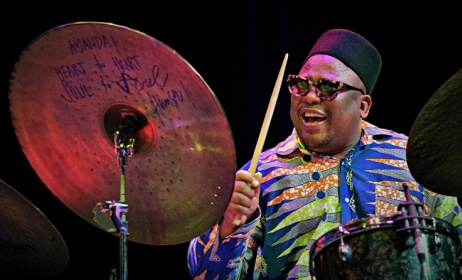A guide to record and publishing deals in South Africa
Simon Robson, president of international recorded music at Warner, stated in the 2021 Global Music Report, “I would argue the most exciting development this year has been how African music and African artists have been embraced by fans worldwide.”[1] But how can local musicians best take advantage of this surge in global interest?
This article provides a guide to publishing and recording deals in South Africa, including what artists should expect from these deals, and what steps they can take to ensure that their interests are protected when entering into these partnerships.
Publishing deals
We have seen from our discussion of music copyrights that publishing royalties are an important revenue stream for South African musicians.
According to music business consultant Jonathan Shaw, “A music publisher is a party who takes assignment of the copyright in original music [lyrics and/or musical compositions], or who licenses these rights from the author [the artist], and has the duty of administering and exploiting the rights on behalf of the artist, with the goal of making as much money as possible for both parties.”[2]
Therefore, songwriters will often choose to work with music publishers through a publishing deal in order to enhance their earning potential from copyright-related royalties. This is because “often a publisher has better contacts, negotiating skills and administration than you could ever have on your own. A good song requires concentrated marketing, which the publisher won’t waste the time and risk of losing money on.”[3]
Types of music publishing deals
Generally speaking, there are three types of publishing deals available to musicians:
- Rights administration. In this deal, the publisher does not acquire ownership of your copyrights, but administers them for a fee – usually ranging from 10% to 25% of the income received. As a songwriter, you therefore “give up a percentage of your music publishing revenue, with the hope that the administrator will help your songs generate more revenue to offset the fee.”[4] While this is an attractive option for composers, there is a risk involved, as it “may mean the publisher pays less attention [to your music when] the deal is limited to administration only.”[5]
- Co-publishing. This is the ‘standard model’ in the industry today and describes a situation where the publisher and the songwriter co-own the composer’s copyrights (50% each), while the music publisher administers the copyrights on the writer’s behalf. These deals tend to be long-term – usually 50 years beyond the death of the composer – and can result in the songwriter relinquishing between 25% and 50% of publishing revenue received. In some cases, an advance is paid by publishers to artists in order to secure a co-publishing deal.[6]
- Buyout. Also known as ‘full publishing agreements’, buyout deals are usually reserved for prominent artists with extensive back catalogues. In these deals, the publisher owns 100% of the copyrights in the musical works and has sole administration rights. Usually, this is accompanied by 50/50 split in terms of publishing revenue received.[7]
Video: This video from KDMR Music explains the three types of publishing deals in the music industry.
South African musicians should note that there are guidelines set out by Southern African Music Rights Organisation (SAMRO), the country’s performing rights CMO, which state that publishing deals should provide the writer with 66.3% of the income derived from publishing rights – leaving 33.7%, or roughly one third, for the publisher).[8] This is an example of where it is crucial to know your rights as a songwriter and to negotiate, if necessary, in order to protect the value of your copyrights.
Do I need to sign with a music publisher?
Dave Scott of The Kiffness recently addressed the question of whether it is ‘necessary’ to work with a music publisher in South Africa or not, concluding, “If you’re good at doing admin, and happy to negotiate potential synchs for adverts & movies, then no. If you’d prefer to have someone helping you with this kind of stuff, yes.”[9]
This, however, reveals a final important point about publishing deals, namely that many artists will opt to work with a music publisher for the express purpose of finding synchronisation deals for their music. As Jonathan Shaw explains, “Unlike record companies that actively look at getting new recordings and performing artists on the web, on radio and on the stage, music publishers will look at getting musical works into new recordings, films, theatre and other uses … Since SAMRO and CAPASSO [the Composers, Authors and Publishers Association] take care of reproduction and performing rights, the publisher is left to license deals for uses outside these two organisations, namely what the industry refers to as synchronisation deals.”[10]
If you are interested in working with a music publisher to help administer and exploit your musical copyrights, you can find a full list of companies in the Members Directory of the Music Publishers’ Association of South Africa (MPASA) website.
Record deals
In a 2012 SAMRO newsletter, intellectual property lawyer Stephen Hollis described the purpose of record companies as follows: “To create the best possible recording of the artist's voice and/or music, and to utilise its local and international product and content distribution networks to place and promote the record in stores, radio, television, and digital and other media.”[11]
In exchange for these services, labels sign record deals with artists, entitling the record company to recoup their expenses, offset overhead costs and share in profits generated by the recording.
Types of record deals
Record deals come in many shapes and forms, each signifying a different level of commitment on the part of the record label. The definitions below are explained in greater detail here – but, as a general rule of thumb, the more a record company invests in a particular project, the greater degree of control over the production it will expect to have, and the greater share of the profits it will keep for itself.[12]
- Licensing/distribution deal. When an artist enters into this type of deal, they are selling the use of a pre-existing album to the record label. The label will pay a licensing fee to the artist in order to manufacture, distribute and promote the album in a given territory.
- Exclusive record deal. Under the terms of this deal, the label undertakes every cost to produce and distribute the album. In exchange for this, the record company may exert some degree of creative control over the album’s production, and all expenses will be recouped from income generated by the recording.
- Development deal. Similar to the exclusive recording contract, the development deal is usually limited to a single recording. Development deals also typically attract a smaller amount of financial investment from the label.
- Production deal. These deals are signed between artists and production houses (e.g. recording studios). In a typical deal, the production house will pay the recording costs and then approach record labels to find a licensing deal for the artist (see above). These deals can be harsh on musicians, with production houses usually demanding a 50/50 split on all recording income.
- 360 deal. A 360 deal entitles the record company to earn money from all areas of the artist’s activities. This means that while the record company will invest in creating multiple income streams for the artist – such as tours and live shows, merchandising, and radio and TV appearances, etc. – it will also be entitled to earn a portion of the income derived from these sources.
If you are interested in finding a record label to help you produce, promote and/or distribute your music, here is a list of records labels in South Africa accepting submissions.
Video: This video from Brandman Network provides a summary of the different kinds of music deals, including the advantages and disadvantages of each.
Key contract terminology
No matter what kind of record deal you are offered, it vital that you fully understand the terminology of your recording contract. Seek advice from legal professionals or music industry veterans, as required, as it is vitally important to understand the full implications of every term and condition of your contract, and how these will affect your earnings. As Stephen Hollis points out, an artist may look superficially at a contract “and consider a 15% royalty on every record sold as a healthy return, but the amount actually received after all deductions have been made will probably be closer to 4%.”[13]
Below is a list of some of the most important terms that musicians should try to negotiate in standard recording contracts. The full list can be accessed here, and you can take a deeper dive into the legalities of recording contracts here.[14]
- Rights granted. Under most exclusive recording contracts, the artist will assign copyright in the sound recordings (i.e. neighbouring rights) to the record company. If you are a songwriter/composer, be wary of record deals that also seek to take ownership of your publishing rights.
- Advances. Advances are upfront sums of money paid to the artist on the basis of future (expected) royalties. Ensure that your contract stipulates that you should only ever have to repay advances when your record sales generate sufficient royalties to cover them; otherwise, these could be held against you as matters of personal debt.
- Recording costs. Remember that recording costs will ultimately be recouped by the record label. Try to insist that these are recouped from gross receipts – and not from your share of royalty earnings. It is also advisable that you try to set minimum and maximum investment figures concerning recording costs. This will protect you from under-financing, as well as set a ceiling on the amount of money you will eventually have to repay.
- Royalties. Royalty rates can vary from 13% to 20%, but a standard royalty rate for artists signed to established labels is 15%. However, in the case of smaller, independent labels, which will not be able to provide as much financial backing, the royalty rate can climb to 50%.
- Secondary income. Ensure that your royalty payments extend to what are commonly called ‘secondary income’ sources, such as revenue raised through merchandise sales and synchronisation deals.
- Promotion. Once your album is recorded, it will require some form of national or international promotion to effectively market it to the public. Although crucial to the success of any record, these marketing costs can rack up significantly. Like with recording costs, try to set minimum and maximum figures for the promotion budget and insist that recoupment for these costs is from gross receipts. Finally, because you will only ever get paid on royalty-producing sales, it is a good idea to put a limit on the distribution of free goods as a marketing strategy.
- Tour support. Much like recording and promotional costs, aim to set minimum and maximum figures for touring budgets in your contract, and ensure that a fair recoupment strategy is in place.
Music publishers and record companies fulfil a crucial role in the music industry, often helping artists scale their careers and access broader, deeper revenue streams by connecting them to bigger audiences.
However, musicians are encouraged to enter into a publishing or record deal with a cool head and a thorough understanding of the terms and conditions governing their contracts. As Jonathan Shaw explains, “Whether self-releasing or signing a contract, an artist is bound to fare better when armed with as much knowledge as possible about the music business and its related laws.”[15]
Resources and citations
- [1] Ogunjuyigbe, O. (2022). “Why the word’s second-largest record label is bullish on African music.” Ventures Africa. Accessed on February 11, 2022: https://venturesafrica.com/why-the-worlds-second-largest-record-label-is-bullish-on-african-music/
- [2] Hollis, S. (2012). “One for the money, two for the show”. SAMRO Beat Bulletin. Accessed on February 11, 2022: https://www.samro.org.za/news/articles/one-money-two-show
- [3] Shaw, JG. (August 2015). “The Ins and Outs of Publishing Deals for Songwriters”. SAMRO Beat Bulletin. Accessed on February 11, 2022: https://www.samro.org.za/newsletter/content/ins-and-outs-publishing-deals-songwriters
- [4] Lawyer Drummer. (2014). “The 3 Types of Music Publishing Agreements (and why they’re important)”. Accessed on February 11, 2022: https://lawyerdrummer.com/2014/04/music-publishing-agreements/
- [5] Shaw, JG. (August 2015). Ibid.
- [6] Lawyer Drummer. (2014). Ibid.
- [7] Ibid.
- [8] Shaw, JG. (August 2015). Ibid.
- [9] Scott, D. (2019). “How to get paid the royalties owed to you in South Africa”. The Kiffness. Accessed on February 11, 2022: https://www.thekiffness.com/2019/how-to-get-paid-the-royalties-owed-to-you-in-south-africa
- [10] Shaw, JG. (October 2015). “Understanding Music Publishing”. SAMRO Beat Bulletin. Accessed on February 11, 2022: https://www.samro.org.za/newsletter/content/understanding-music-publishing-jonathan-shaw
- [11] Hollis, S. (2012). Ibid.
- [12] Chinedu, S. (2022). “How To Become A Top South African Artist Through The Best Record Labels”. Siwes Beginner. Accessed on February 11, 2022: https://siwesbeginner.com/south-africa-record-labels-contact/
- [13] Hollis, S. (2012). Ibid.
- [14] Salmon, R. (2007). “Recording Contracts Explained”. Sound on Sound. Accessed on February 11, 2022: https://www.soundonsound.com/music-business/recording-contracts-explained
- [15] Shaw, JG. (October 2015). Ibid.
This article is part of the Revenue Streams for African Musicians project, supported by UNESCO’s International Fund for Cultural Diversity in the framework of the UNESCO 2005 Convention on the Protection and Promotion of the Diversity of Cultural Expressions, the Siemens Cents4Sense programme, Siemens Stiftung, Goethe-Institut, the National Arts Council of South Africa and Kaya FM.
Editing by Kalin Pashaliev

























Commentaires
s'identifier or register to post comments